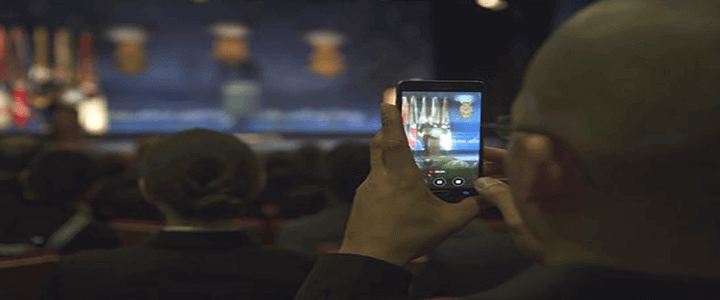Espionage occurs every day. And every counterintelligence briefing conducted by a Field Security Officer (FSO) includes an admonishment that hostile intelligence agencies are always at work and targeting U.S. government entities, to include those which fall under the rubric of the National Industrial Security Program (NISPOM). Events of the last few weeks serve to highlight that it is not just foes who may be interested in exploiting and collecting against the U.S. government, but friends as well.
Israel accused of planting Stingray devices
In 2018, the Department of Homeland Security advised Congress that they had discovered “Stingrays” in the vicinity of the White House. The Stingray is a miniature device which mimic cell towers and serve to collect location and identity information of cellular devices. The device can be configured to target specific numbers and collect the content of calls received and originated from those devices.
Allegations and suspicions of similar devices have been made over the years, and according to CBS News, in 2014, security researchers conducted public sweeps and located unauthorized devices in proximity to the Supreme Court, White House, Commerce Department and the Pentagon. At that time, the FCC advised Congress that they were forming a task force to combat illicit and unauthorized use of these devices.
In September 2019, Politico, citing three separate intelligence sources identified Israel as the foreign government behind the 2017 activity. The rationale behind clandestine signals intelligence (SIGINT) collection effort was not revealed.
Russia owned the FBI surveillance radio network
Earlier this month national security reporters Zach Dorfman and Jenna McLaughlin wrote how Russian security services had successfully identified and broke into the communications systems utilized by the FBI’s counterintelligence surveillance groups. While the revelation to the public became known in September 2019, the article notes that U.S. officials knew that the Russians in Washington, New York and San Francisco had obtained key insights into the FBI surveillance teams.
Russia bugged the State Department
Lest we forget, when given the opportunity the Russians will show their nerves of steel in the conduct of offensive espionage operations.
In 1999 the Russians successfully planted a listening device into a 7th floor conference room with the U.S. Department of State. At that time, according to the 2015 book, “State Department Counterintelligence: Leaks, Spies and Lies,” unescorted foreign nationals within the Department was not unusual. The fact that the conference room down the hall from the Secretary of State was targeted by the SVR should surprise no one. Unfortunately, how the Russians were successful and who placed the device is still a mystery. How was it discovered? Russian diplomat Stanislav Gusev was noticed in proximity to the agency by U.S. government surveillance. The surveillants noted that he would often times have his hand in a bag and that a wire from the bag was connected to an earpiece (pre Bluetooth, no doubt).
The State Department security teams conducted a Technical Security Countermeasures scan of the building and discovered the device inside the chair rail molding on the wall of the 7th floor conference room.
Hostile Intelligence espionage includes offensive counterintelligence
Offensive counterintelligence operations are the bread and butter of every counterintelligence and counterespionage program. The ability to listen to your adversary, as demonstrated by the Russians targeting the FBI, allows one to work in the margins of the FBI’s counterespionage efforts. Putting a bug into the conference room in proximity to the the Secretary of State, while ballsy, is also a no-brainer for an offensively minded intelligence officer. Similarly, collecting cellular call data and/or content is equally as valuable to a both friend and for within the counterintelligence scrum.
We should revisit the adage, “countries don’t have friends, they have interests.”




